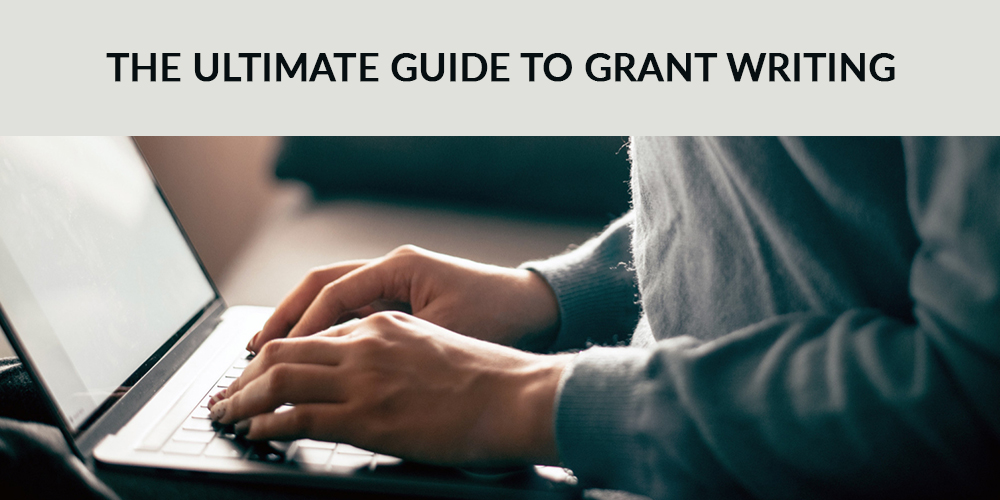The Ultimate Guide to Grant Writing
Grant writing is an invaluable skill for organizations and individuals that are seeking additional resources to support their causes or projects. It requires a lot of research, planning, and communication with potential funders to have any chance of success. If you’re new to grant writing or just need a refresher, then this article is for you! The Ultimate Guide to Grant Writing provides all the essential information a beginner or experienced grant writer needs.
What is Grant Writing?
Grant writing is the process of preparing a proposal to convince sponsors to award funds to organizations, projects or individuals. It involves researching funding sources and crafting persuasive narratives that demonstrate how the proposed project aligns with the sponsor’s mission and objectives.
Identifying Potential Grants
The first step in identifying potential grants is understanding what types of funding sources are available to you. Grants from private foundations, state agencies, or the federal government provide different levels of funding for various causes or goals. It’s important to research each source thoroughly to determine eligibility requirements and restrictions on how the money can be used. Additionally, researching any previous grants awarded by these sources will give you a better idea of their preferences and interests when it comes to selecting projects for funding.
A professional grant writer can also help make sure that your organization has access to all the funds it needs to successfully fund its projects and initiatives.
Research & Preparation
To ensure success when pursuing grants, it is important to understand the research and preparation necessary for grant writing. When researching potential grants, grant writers must first consider their qualifications in relation to the requirements of the grant. Once qualified, they should identify important dates such as deadlines and review any relevant documents like eligibility criteria or application guidelines that may affect their chances of success.
Planning & Drafting the Proposal
The first step to writing a successful grant application is to plan out the process from start to finish. A well-thought-out plan will help ensure that all of the necessary components are included in the proposal and that no important points are missed.
When preparing their application for a particular grant, it is important for grant writers to include an executive summary outlining the purpose of the project and its expected outcomes. They should also include all relevant information such as budgets and timelines to demonstrate how funds will be used efficiently if awarded.
It’s also important to be mindful of any deadlines associated with submitting an application or responding to questions or requests for additional information.
Once your plan has been established, it’s time to draft your proposal narrative.
Drafting Your Proposal
When drafting your proposal, it is important to include all pertinent details such as the project timeline, budgeting considerations, evaluation criteria, and desired outcomes. To increase the odds of success when applying for funding, it is essential that you understand the expectations of potential funders before you start writing your proposal. Hiring a professional grant writer may also be beneficial to ensuring that your application meets all requirements set forth by funders. Grant writers have extensive experience with understanding the needs of both applicants and funders which can make them invaluable assets when drafting proposals.
A trained and experienced grant writer knows how to craft an effective proposal that includes all of the necessary components and review applications for accuracy and completeness before submission. Additionally, they provide guidance throughout each step of the process so that you have confidence when submitting your proposal.
Submitting Your Proposal
Before submitting your proposal, you should ensure that it meets all criteria set out by the granting organization. This will involve researching their mission and objectives, as well as understanding their guidelines for submission. A professional grant writer can help here as well, providing advice on how best to design and structure your proposal in order to meet each requirement. They can also provide guidance on which information should be included or excluded in order to maximize your chances of success.
Securing & Administering Funds
Once grants are awarded, it is up to administrators to ensure that those funds are properly secured and administered in accordance with their guidelines.
In order to make sure awarded grant funds are handled appropriately and efficiently, there are several steps that administrators can take. It’s important for them to establish clear processes around how money will be allocated as well as who will authorize expenses and reimbursements associated with the project or initiative being funded by the grant. Additionally, they should have secure methods in place for monitoring spending trends so they can quickly identify any discrepancies or misuse of funds before they become major issues.
Most importantly, all required acquittal paperwork must be completed correctly and on time. This includes submitting reports detailing how funds have been used as well as keeping detailed records of all expenditures related to the project. By having accurate records ready for review when needed, organizations make themselves eligible for future grants or additional funding opportunities from existing providers.
What Are You Waiting For?
In conclusion, grant writing is a complex process that takes skill and patience. By following the Ultimate Guide to Grant Writing, you can organize your approach to identifying potential grants, researching and preparing for them, drafting proposals and submitting them, as well as administering awarded funds. With the right attitude and resources to back you up, there’s no reason why you shouldn’t be able to submit a successful grant proposal. So, what are you waiting for?
Having a qualified grant writer on board makes it easier for organizations to complete successful applications that increase their chances of receiving funds in support of their mission or objectives.

